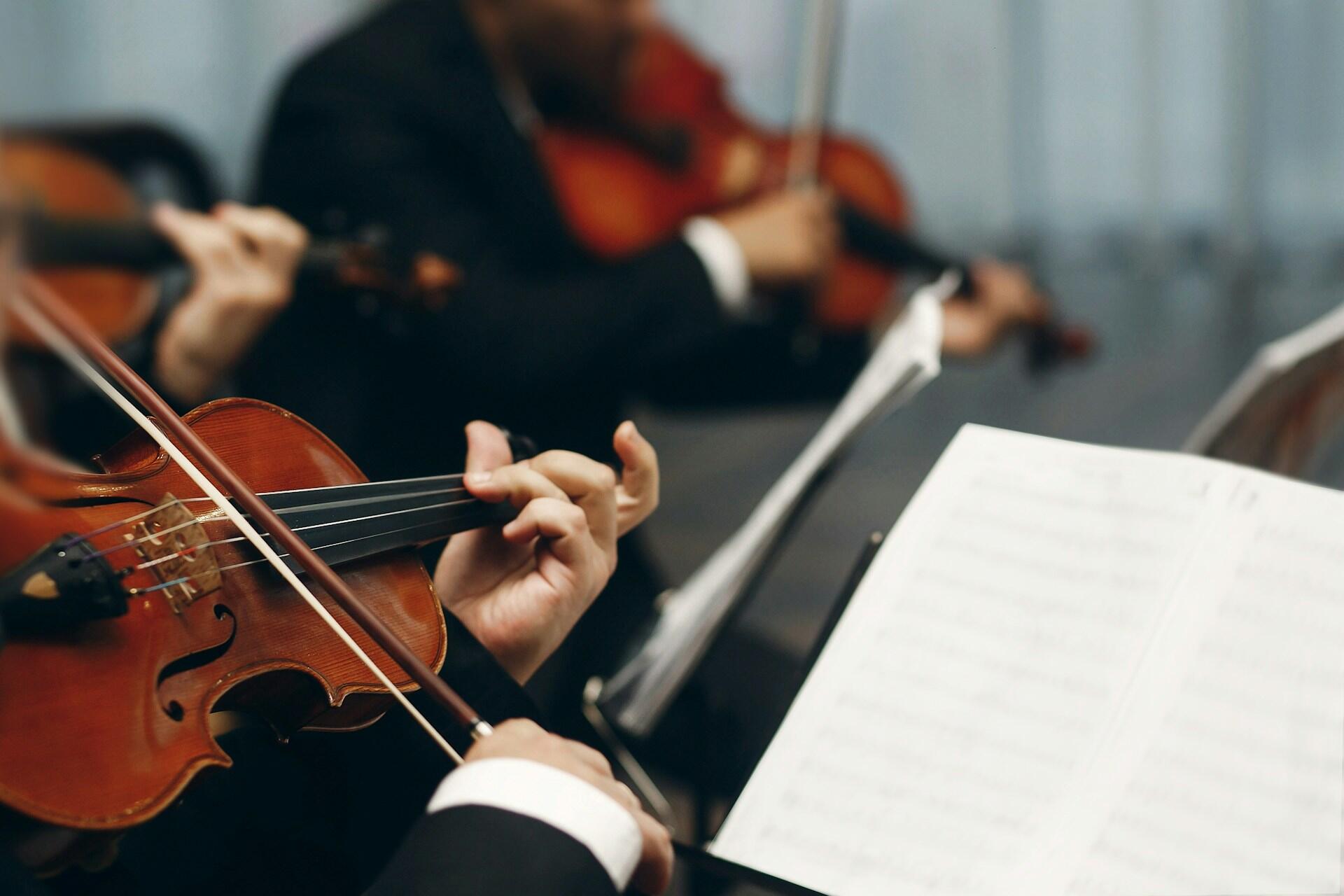The Los Angeles Philharmonic (LA Phil) is one of the world's top orchestras, presenting over 300 shows in its native city and dozens more on tour around the world each year. Founded in 1919 by William Andrews Clark Jr., the orchestra made its premiere in 1922. Since then, it has earned its way to the top in terms of performance, gaining a reputation for excellence. Find out more about the Philharmonic’s interesting history and how you can enjoy a concert today.

The Evolution of the LA Phil
In 1919, philanthropist and amateur violinist William Andrews Clark, Jr., founded the Los Angeles Philharmonic to replace the struggling Los Angeles Orchestra. Using his personal fortune, Clark recruited top musicians from the older outfit and, after just eleven days of rehearsal, presented the orchestra’s first concert at Trinity Auditorium.
As Los Angeles grew into a cultural hub, the new philharmonic thrived. Clark appointed Henry Rothwell, a former assistant to Gustav Mahler, as the first music director, heightening excitement around the orchestra’s early seasons. The LA Phil quickly became associated with the Hollywood Bowl, performing there from its earliest years.
The Chicago Orchestra was also founded with the belief that classical music should be more available to the citizens there.
In 1920, KNX Radio broadcast one of Los Angeles Philharmonic's concerts, the first full orchestra performance ever aired on the radio.
Clark believed classical music should reach everyone, not just elite audiences. He championed neighborhood concerts in schools and parks, strengthening ties between the orchestra and the city. Despite facing the Great Depression, wars, and Clark’s death, the musicians and leaders persevered, adapting through challenges and evolving with the times.
The opening of the Walt Disney Concert Hall in 2003 gave the orchestra a chance to breathe, knowing their popularity and importance won’t wane anytime soon. Under the visionary directorship of Gustavo Dudamel, the Los Angeles Philharmonic has continued to shine by winning Grammys, expanding community outreach, and putting on world-class performances.
Leadership and Artistic Vision
The history of the Los Angeles Philharmonic is long and storied, a patchwork of team and individual efforts over the years. Its growth was hardly straightforward, with multiple threats of bankruptcy and shutdown, and conflicting creative visions.
Thanks to the continued dedication of all previous leadership and instrumentalists, the group survives today. But there are a handful of people in executive positions to specifically thank for protecting the Philharmonic from closure over the years.
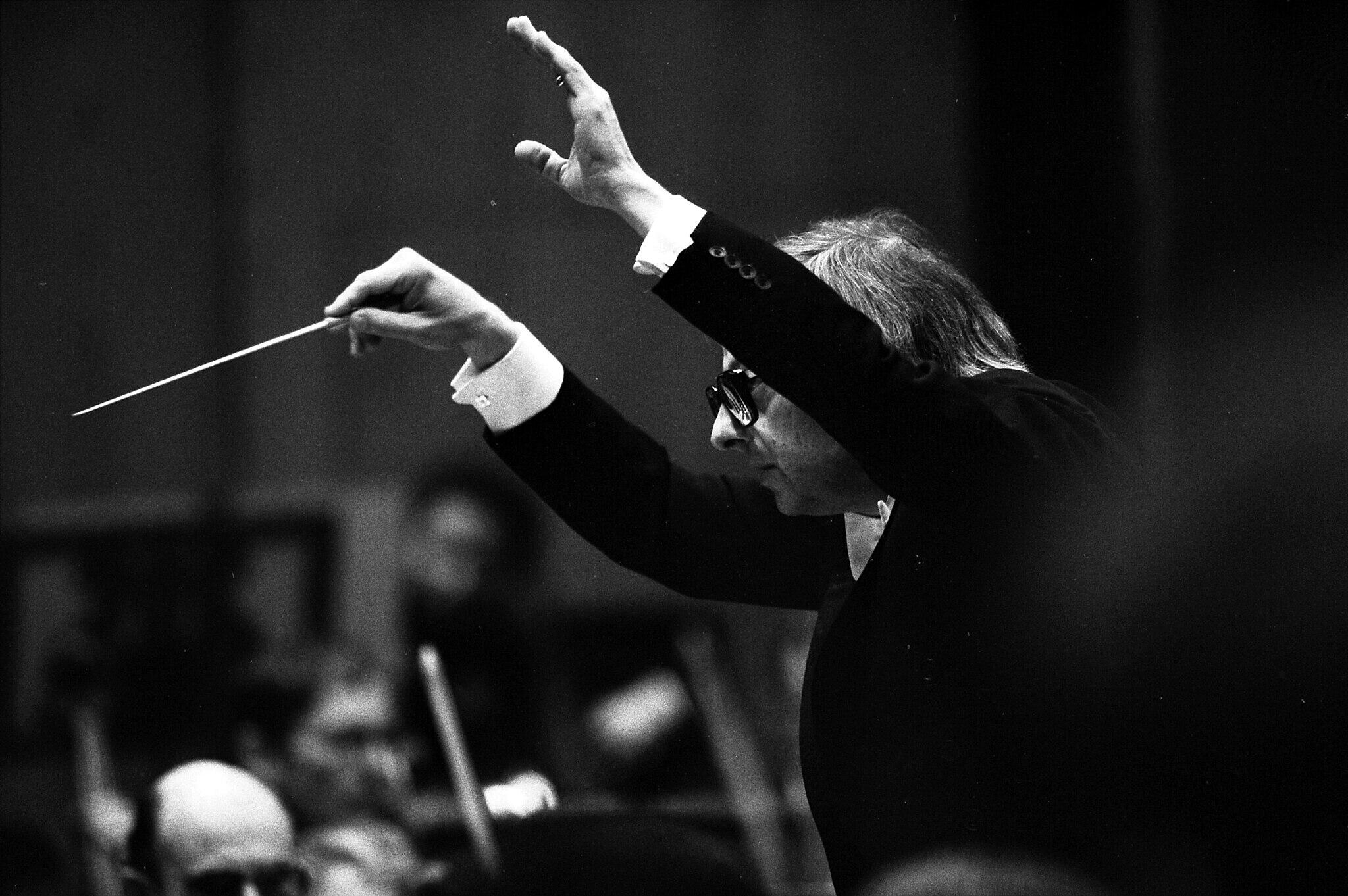
Music Directors
In a professional orchestra, the music directors are the people who primarily choose the pieces to rehearse and add to the repertoire. They conduct the group in rehearsals and concerts, have the final say in hiring instrumentalists, decide the group’s artistic path, and coordinate things like concert schedules and public outreach.
There have been 11 musical conductors in the Los Angeles Philharmonic’s history, and a 12th will soon be chosen as current maestro Gustavo Dudamel transitions to the New York Philharmonic in 2026.
1919-1927
Walter Henry Rothwell
Rothwell was hand-selected by founder Clark to become the first music director for the LA Philharmonic. He had previously studied for two years as an apprentice to renowned composer Gustav Mahler and led two opera tours across the US. With his experience, he was able to quickly recruit instrumentalists and rehearse the ensemble well enough for their debut in just 11 days. Critics hailed the performance, calling it “the birth of the most prodigious infant in symphonic history.”
1927-1929
Georg Schnéevoigt
Considered a skilled conductor in his time, Schnéevoigt’s fame waned with the passage of time. Still, while he was conductor for the LA Phil, he was known for his passionate conducting style.
1929–1933
Artur Rodziński
Well-known for his expertise, Rodziński was music conductor for a handful of other major orchestras in the United States during his career. During his time in LA, he focused on expanding the orchestra’s repertoire of contemporary pieces.
1933–1939
Otto Klemperer
Another Mahler student, Klemperer took the job as director at a time when funding was low, due to Clark’s financial losses in the Great Depression. Despite the conditions, he was able to lead the group in many well-received performances. His personal success as a conductor helped maintain interest from melophiles.
1943–1956
Alfred Wallenstein
Wallenstein was the first musical director to have been an LA Phil alum, having played with the organization at its debut. In his tenure, he championed music from American composers, fought to increase his players’ salaries, and made the LA Phil the first major orchestra to hire a black instrumentalist, double-bassist Henry Lewis.
1956–1959
Eduard van Beinum
Van Beinum was brought on as a famous figure intended to drum up more interest in the organization. Unfortunately, he suffered a fatal heart attack in 1959, before he had a chance to leave a strong impression on the organization.
1962–1978
Zubin Mehta
In the interim between van Beinum’s death and Mehta’s appointment, Sir Georg Solti was meant to be named the next director, but resigned when Mehta was appointed assistant conductor without consultation. Mehta refined the orchestra’s quality, inspired by the Vienna Philharmonic’s sound, in part by implementing competitive techniques like changing seating arrangements. His skilled conducting style, combined with the improved instrumentation quality, led the LA Phil to earn accolades and step up their reputation. Mehta was named Conductor Emeritus in 2019.
1978–1984
Carlo Maria Giulini
Known for his excellent conducting style and many successful recordings, Giulini helped polish the LA Phil’s musical talents further.
1985–1989
André Previn
Previn’s tenure at the orchestra was technically sound, but professional disputes with executive vice president Ernest Fleischmann hindered any groundbreaking progress.
1992–2009
Esa-Pekka Salonen
Salonen is credited with elevating the LA Phil to new heights. He led the group on 23 national and international tours to places like London, Switzerland, and Paris, as well as across Asia. The Paris performance was a pivotal moment, as the board members in attendance heard what a difference a professional concert hall makes in the music. It inspired them to secure the remaining funding necessary to complete the Disney Concert Hall in 2003. He was named Conductor Laureate before departing the LA Phil, and has now been named the Creative Director Designate 2026 to serve in the interim between when Dudemel leaves and a new music director is selected.
2009-2026
Gustavo Dudamel
The world-famous conducting virtuoso has become a beloved fixture in the Los Angeles Philharmonic’s modern-day history. Before even officially beginning his tenure, he helped establish the YOLA program. With his enrapturing and contagious passion, both the company and the audience experience a stirring of heightened emotion during performances, giving the LA Phil its beloved and highly respected reputation today.
Notice that some of these directors' names appear in multiple Big Five ensembles, such as Artur Rodziński in the Cleveland Orchestra!
Collaborations with Renowned Composers, Guest Conductors, and Other Key Figures
LA Phil’s status as a beloved group in recent times is mostly due to maestro Dudamel’s energetic personality.
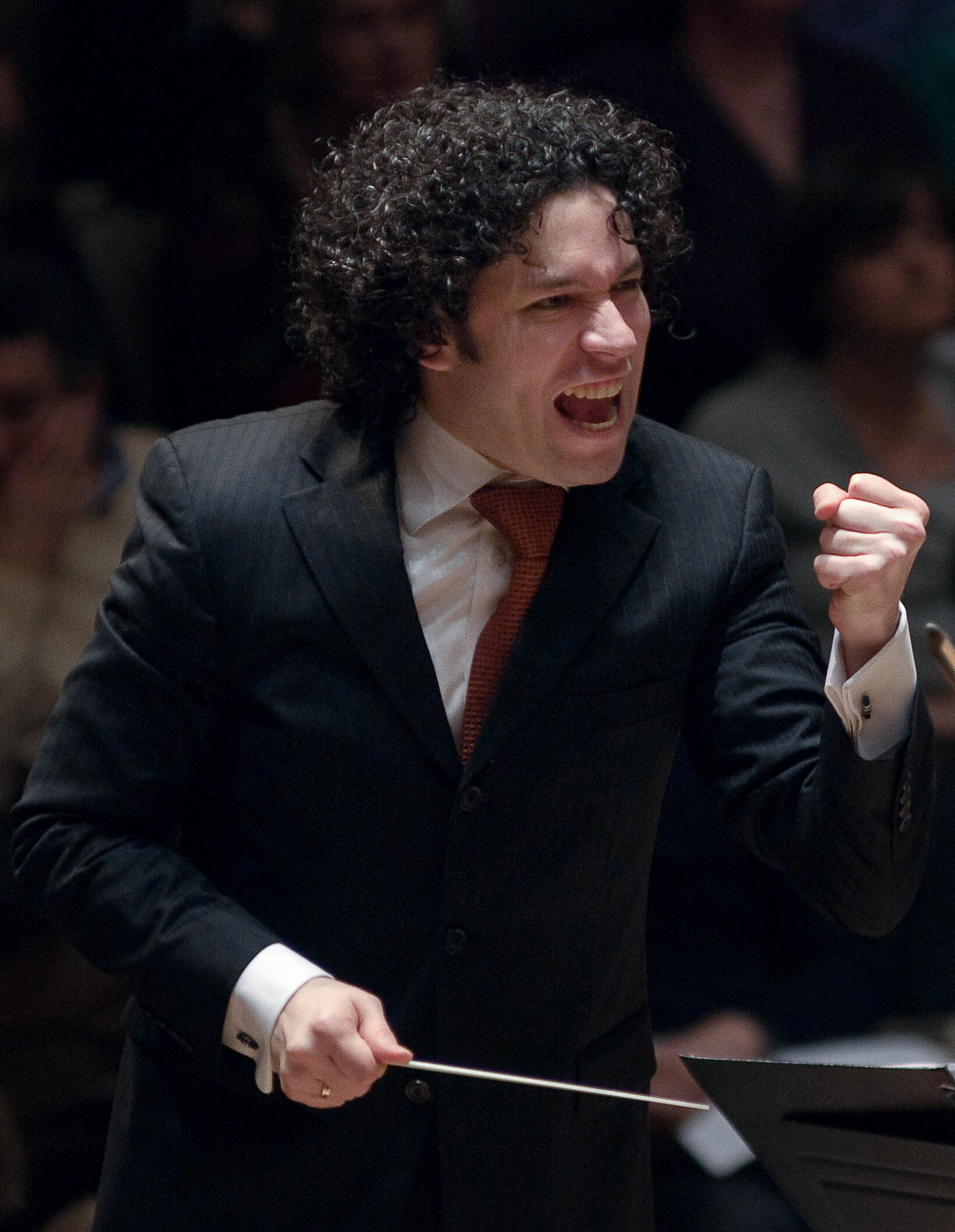
His involvement in the community and pop culture beyond the stage has catapulted the group to mainstream fame.
He is known for appearing in places like Sesame Street and the halftime show at the Super Bowl with Beyoncé, among others.
He has also led the outfit in recording soundtracks for films like Star Wars VII: The Force Awakens (2015) and Steven Spielberg’s remake of West Side Story (2021), even earning a Grammy Award for the latter.
Of course, the foundation was laid by all those who came before him, and the entire organization has many contributors, past and present, to thank.
Principal Guest Conductors
These stellar guest conductors have contributed to incredible performances through the years. Their presence on the stand helps invigorate interest in the Philharmonic and elevate its reputation. These are the main guests over the years who have worked to advance the organization.
- 1981–1985: Michael Tilson Thomas
- 1981–1994: Simon Rattle
- 2005–2007, Hollywood Bowl: Leonard Slatkin
- 2008–2010, Hollywood Bowl: Bramwell Tovey
- 2017–2022: Susanna Mälkki
LA Phil was one of the first American orchestras to invite a female conductor to the stage (Ethel Leginska in 1925).
Collaborative Composers
The composers-in-residence at the Los Angeles Philharmonic have met tremendous success with the organization. In their time, they worked to commission new music for the orchestra’s repertoire and help deliver on the organization’s creative vision. Here are the main composers to have worked with the ensemble.
- 1981–1985: William Kraft
- 1985–1988: John Harbison
- 1987–1989: Rand Steiger
- 1988–2009: Steven Stucky
- 2009–present: John Adams
Additionally, the Los Angeles Philharmonic has worked with commissions by composers such as Veronika Krausas, Andrew Norman, and Thomas Adès.
Discover the history and upcoming shows of the Philadelphia Orchestra.
The Salonen era in L.A. may mark a turning point in the recent history of classical music in America. It is a story not of an individual magically imprinting his personality on an institution—what Salonen has called the "empty hype" of conductor worship—but of an individual and an institution bringing out unforeseen capabilities in each other, and thereby proving how much life remains in the orchestra itself…
Alex Ross, “The Anti-Maestro,” The New Yorker, 2007
Key Figures in LA Phil’s History
Besides the instrumentalists and conductors, several key managers and benefactors have made the orchestra’s continued success possible. These folks have helped financially and strategically, working to secure funds and grow the organization’s reputation while allowing it to evolve artistically. These are the people who have helped the performing artists have a stage:
- Harvey Mudd: President of the Southern California Symphony Association, who personally secured Klemperer’s salary after Clark passed away
- Dorothy Buffum Chandler: As leader of the board of directors, she pushed for the development of the Los Angeles Music Center, which became the orchestra’s home venue. She also helped lead efforts to hire van Beinum.
- Ernest Fleischmann: He was Executive Vice President and General Manager for 30 years. In that time, he helped develop the Los Angeles Philharmonic Chamber Music Society and the Los Angeles Philharmonic New Music Group, including its "Green Umbrella" concerts, influencing orchestras around the world to develop more accessible concert experiences for their communities.
- Deborah Borda: As President and CEO, she got the organization’s finances under control, successfully allowing them to transition to the Disney Concert Hall while respecting Salonen's (and other artists’) creative visions.
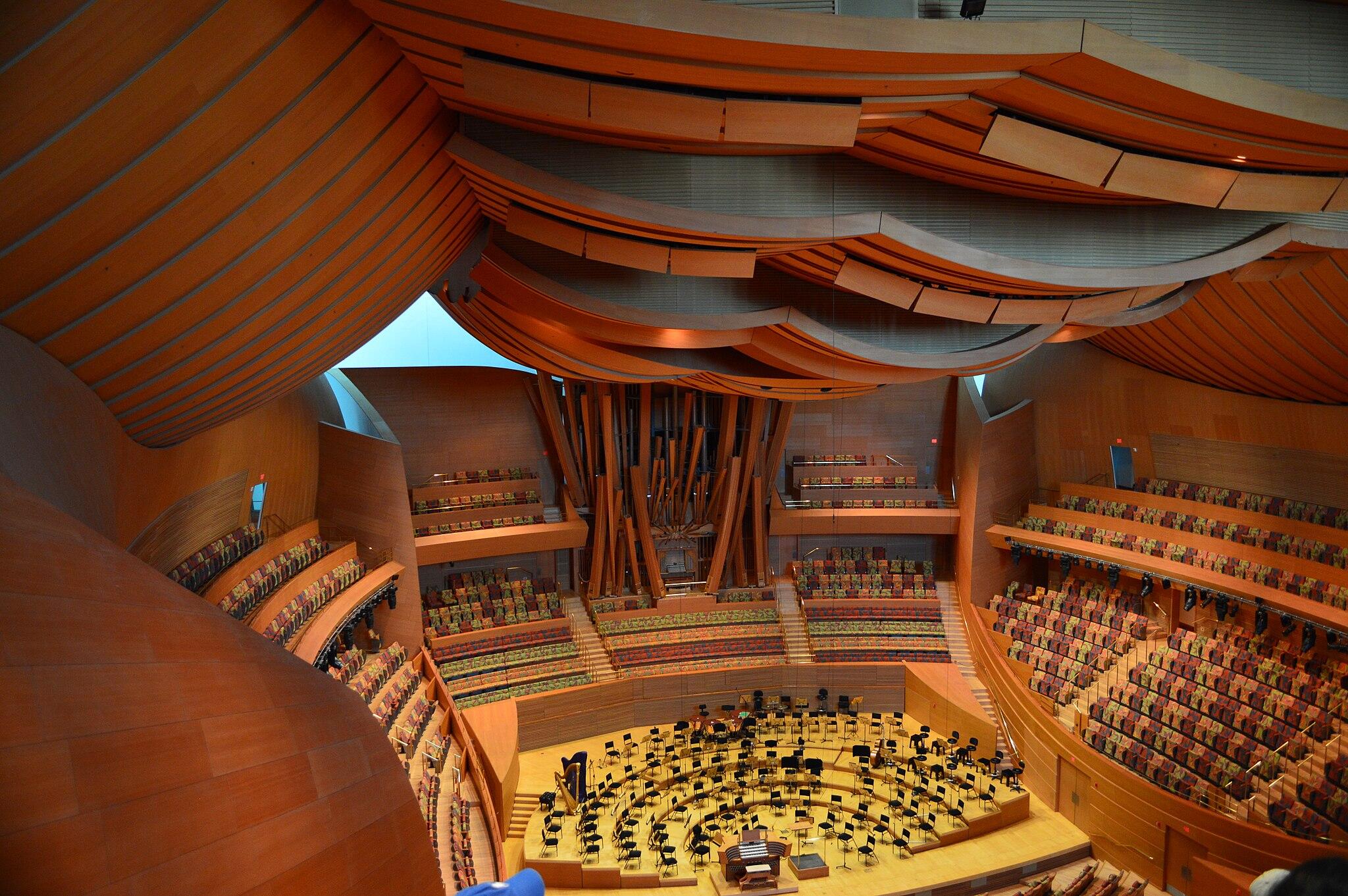

Iconic Venues and Performances
The group currently performs mostly at two major venues: The Walt Disney Concert Hall (winter venue) and the Hollywood Bowl (summer venue).
Both places have become world famous for their history, architecture, and the events they hold.
The Hollywood Bowl became the saving grace for the organization in its toughest times, ensuring it had a place to perform that also garnered suitable income.
At the Dorothy Chandler Pavilion, main subscription concerts are held for the serious aficionados.
In Disney Hall, they’ve performed hundreds of concerts. Many have been particularly influential, such as the Centennial Birthday Celebration broadcast on PBS in 2019, the recording of Gabriela Ortiz's Revolución diamantina in 2022 (which won three Grammys), and a Cello Concerto featuring Yo-Yo Ma in 2019. The impeccable architecture and acoustics make it a cultural landmark in more ways than one.
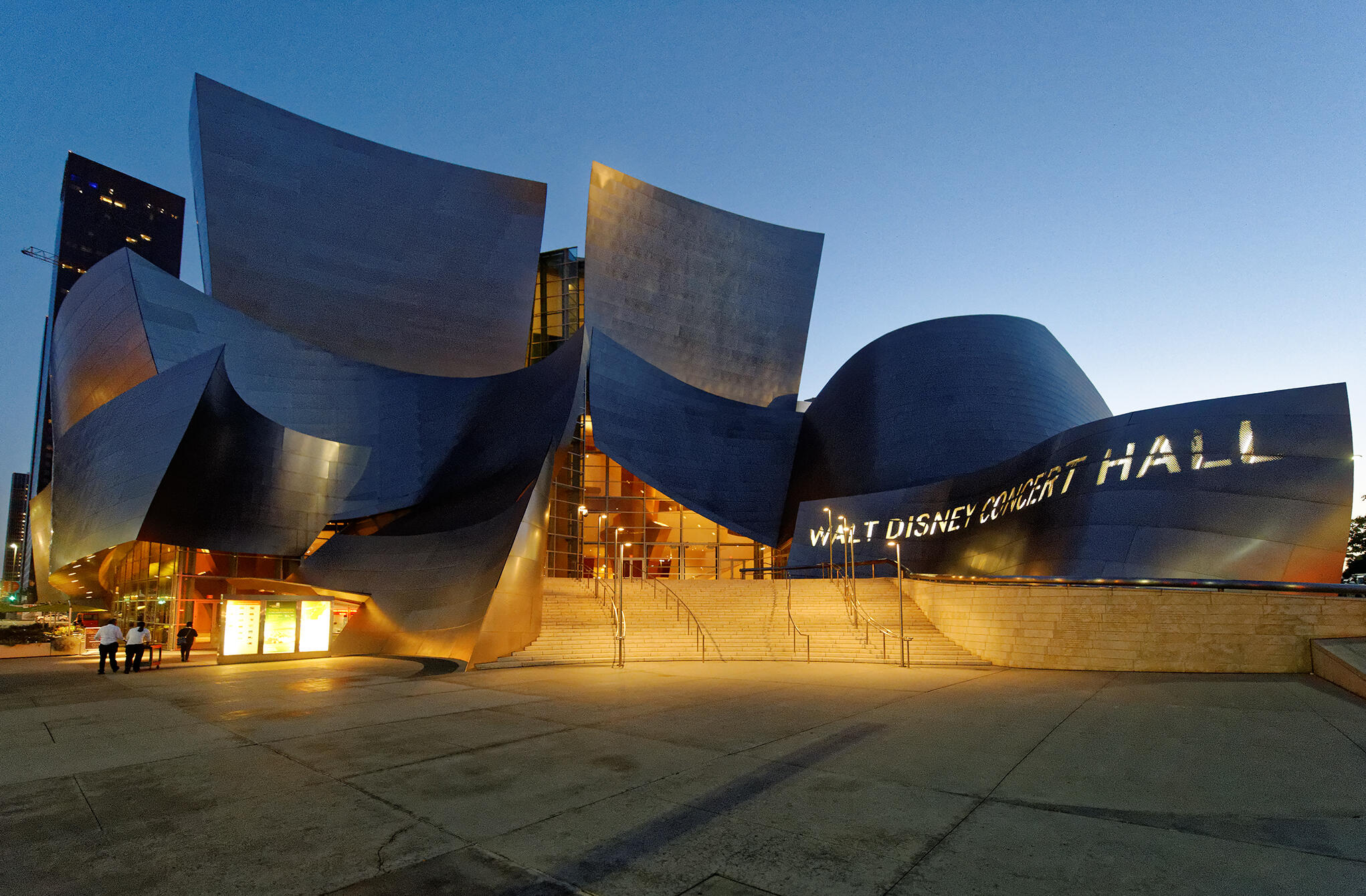
Community Engagement and Education
Since its foundation, Los Angeles Philharmonic has been dedicated to the idea that such music should not be kept inaccessible to the public. Clark himself aimed to establish the organization with an air of approachability rather than exclusivity, to encourage people outside of the usual classical music demographic to attend. For those inspired to pick up an instrument, options such as violin lessons online make learning more accessible.
In its very first year, the organization began its public outreach endeavor, Symphonies for Schools, an annual event inviting schoolchildren in Los Angeles to a free concert.
The tradition has been ongoing, becoming a much-loved aspect of raising children in Los Angeles.
What is music? Well, it’s this: it's an expression of art, of humanity, of humankind doing this. No...this is something important for the health of the spirit of the people.
Gustavo Dudamel
Additionally, Dudamel helped establish the YOLA (Youth Orchestra Los Angeles) in 2007, which helps underserved children in low-income communities experience classical music education. They are given free instruments and musical training, as well as academic support. The program has been a remarkable success. It was modeled after El Sistema, the music program that allowed Dudamel to learn the violin as a child in a low-income family in Venezuela.
All of the major American orchestras have a community involvement component to promote the arts.
Upcoming Shows
The Los Angeles Philharmonic puts on about 300 performances per year, so it’s impossible to list them all. However, they have a scheduled lineup of some can’t-miss performances to look out for!
Some of the top-most anticipated shows for the 2026 season include:
concerts per year
Prometheus with Esa-Pekka Salonen (January 9-January 11, 2026)
This classic performance will feature soloists Liv Redpath (soprano) and Jingjing Xu (mezzo-soprano) in the Los Angeles Master Chorale, as well as Jean-Yves Thibaudet on piano.
Salonen & Levitt Scale Busoni’s Masterpiece (January 17-January 18)
A seldom-performed concerto with an all-male chorus, this performance is a rare opportunity to witness the composition.
Dudamel Conducts Beethoven and Lorenz (February 12-February 15)
This performance is where Gustavo Dudamel will premiere the composition Humboldt’s Nature by Ricardo Lorenz. It’s also a chance to see Gustavo Dudamel again, which will become rarer as time goes on!
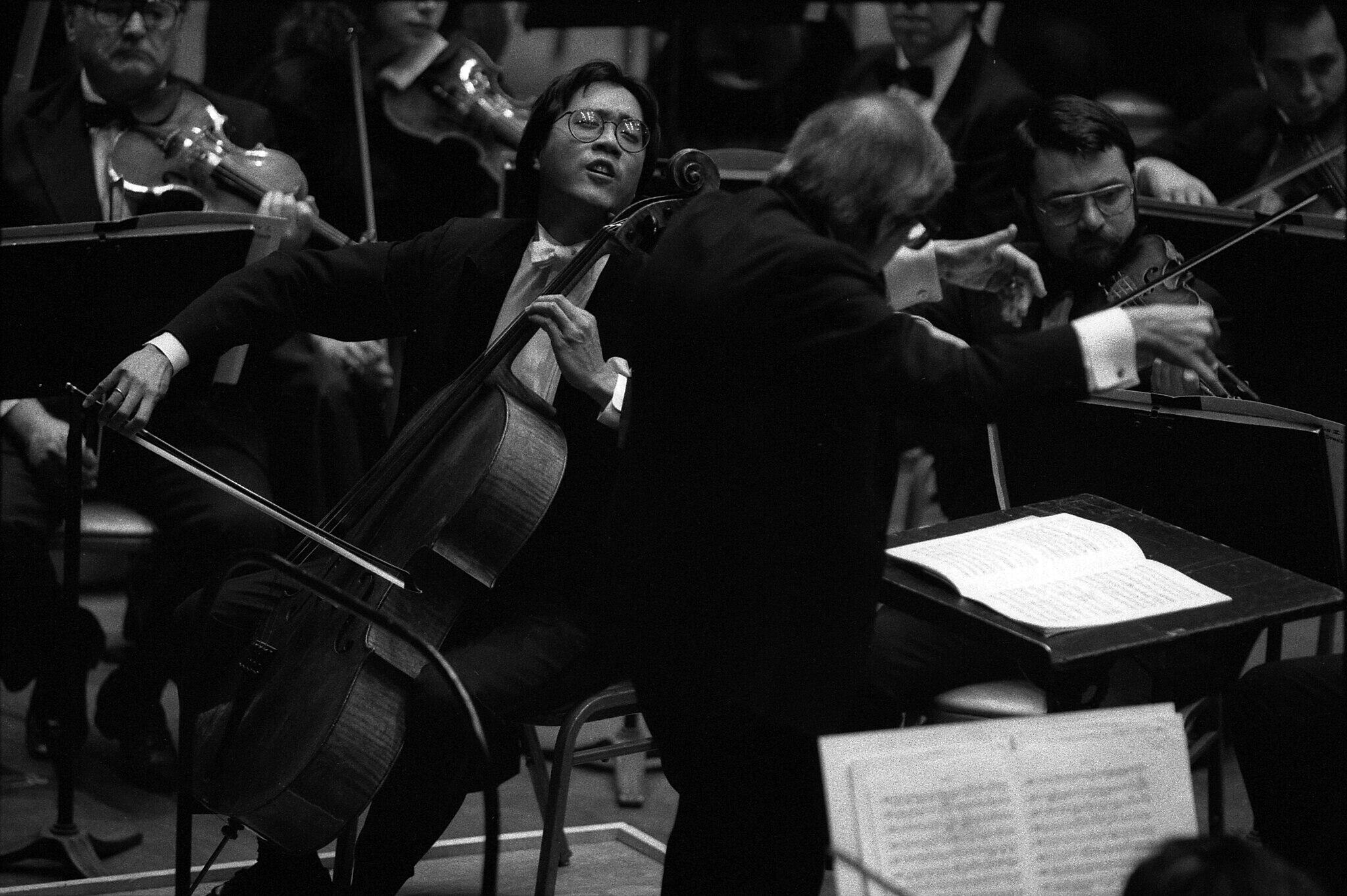
The Great Wall Of Los Angeles (March 7)
Impressed by the Judy Baca mural in town called The Great Wall of Los Angeles, Dudamel commissioned several composers to create accompanying pieces. The compositions will be performed along with a film for an audio/visual experience.
Die Walküre Concerts (May 19, 20, 21 & May 22, 23, 24)
To give this immense 4.5-hour-long opera a proper performance, the Philharmonic will split the work into three acts over the course of three days. Attendants should plan to spend over an hour at the concert hall for three consecutive nights to appreciate the full experience.
Here are some more upcoming shows to consider attending at Walt Disney Concert Hall.
| Date | Description | Cost |
|---|---|---|
| 11/7 - 11/9/2025 | Mehta Leads Bruckner’s Eighth | $64-$252 |
| 11/8 & 11/22/2025 | Symphonies for Youth - Melody & Pitch: An introduction to the woodwind family | $30.50-$34.50 |
| 11/13 - 11/14, 11/16/2025 | Mozart, Ravel & Pintscher | $64-$252 |
| 11/18/2025 | Brahms Strings, Chamber Music | $24.50-$75 |
| 11/21 - 11/23/2025 | Elgar’s "Enigma" | $53-$226 |
| 12/12 - 12/14/2025 | Mozart & Sibelius | $33-$224 |
| 12/16/2025 | Holiday Brass, Chamber Music | $24.50-$75 |
| 12/18 -12/21/2025 | Ellington’s Nutcracker & Tchaikovsky’s “Winter Daydreams” | $75-$278 |
| 1/9 - 1/11/2026 | "Prometheus" with Esa-Pekka Salonen | $33.50-$224 |
| 1/17 & 1/24/2025 | Symphonies for Youth - Sensory Symphony | $34.50 |
| 1/17 - 1/18/2026 | Salonen & Levit Scale Busoni’s Masterpiece | $33.50-$224 |
| 1/20/2026 | Dvořák & Shostakovich, Chamber Music | $24.50-$75 |
| 1/23 - 1/25/2025 | Adams, Ólafsson & Copland | $33.50-$224 |
| 1/29 - 2/1/2026 | Mahler, Bartók & Ravel | $64-$252 |
The Symphonies for Schools 2026 events will be held from March 17 to March 20. Gustavo Dudamel will be performing several more times with his musicians throughout the season, so be sure to catch one of his shows!
Ready to purchase tickets? Simply go to the LA Phil’s events calendar and find the show you want to see. Click the “buy now” button, make your selection, and mark your calendar!
Summarize with AI:

